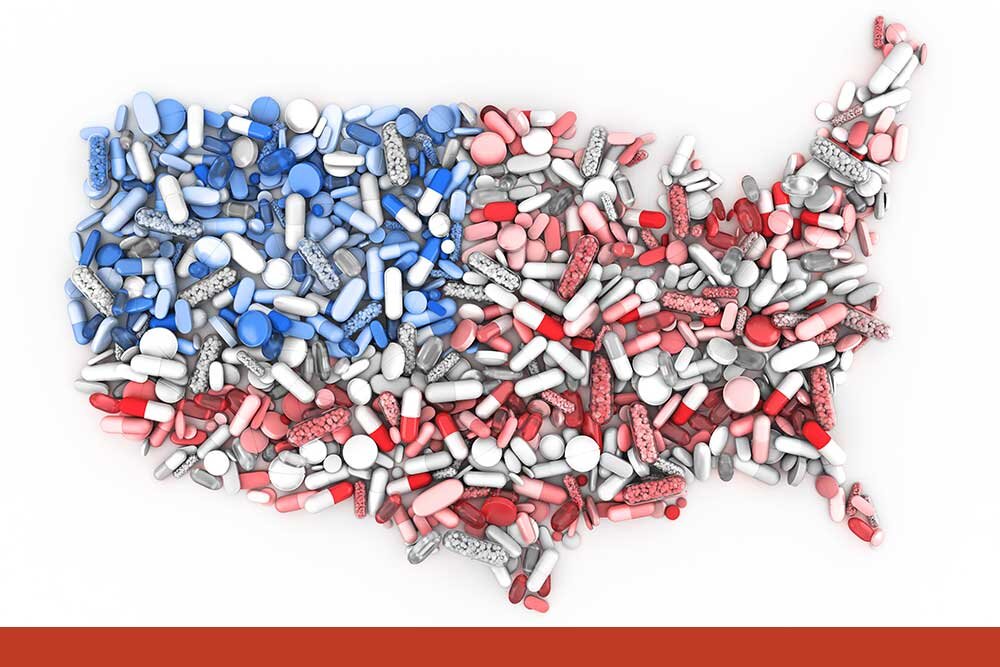Alnylam is doing what the IRA is telling it to do
The recent announcement by Alnylam Pharmaceuticals that it was holding off on a planned Phase 3 pivotal study for vutrisiran (marketed as Amvuttra in its sole approved indication so far, hATTR amyloidosis with polyneuropathy) in Stargardt disease illustrates how the Inflation Reduction Act is already having a negative impact on small molecule and orphan drug R&D prioritization. Alnylam’s announcement also brought out skeptics of the biotech industry, who argue the new law is being scapegoated by innovators who want to overturn its Medicare drug-negotiation provisions.
Saving money for Medicare by abandoning new drugs for Medicare patients
As the founder of two biotech companies in Arizona that are currently fundraising to support drug development, it’s clear to me that the Inflation Reduction Act will steer me away from developing cancer drugs for older Americans. This is a problem that can be fixed.
Navigating a storm that threatens American biotechnology
Over the past four decades, David Beier has observed and participated in the evolution of the US biotechnology industry for several key vantage points. The industry’s success and freedom to innovate, he says, has been underpinned by – and helped create – a marketplace that was open enough to fully reward risk-taking investors devoting capital to cutting edge science. Today, that success faces new threats.
The NIH, R&D, and the first mile of the marathon - a conversation with John LaMattina
A conversation with former Pfizer research head John LaMattina about the persistence of the misperception that NIH invents the drugs that biopharma companies sell, the chance encounters that can lead to breakthroughs years or even decades later, and the tough math facing investors and heads of research across the industry when deciding whether to invest in a project that’ll only enjoy nine years of market exclusivity.
When life-saving medication should be in aisle three
We talk a lot about access to care and the hurdles that might keep people from getting the medicine they need. Usually, we’re talking about the price of healthcare or the inanity of insurance requirements. But other hurdles hide in plain sight, as is the case with naloxone (Narcan), birth control, and other drugs that could (and should) be available over-the-counter (OTC).
Innovation and biopharma M&A: feature, not bug
If the FTC begins to look askance at M&A between commercial-stage biopharmaceutical companies and the innovative smaller biotechs that so often are the sources of new medicines, that would be bad news for future R&D and the patients who depend on our industry for life-saving medicines. That they might do so in the name of preserving or protecting innovation in the first place would add insult to injury.
Post-launch, pre-cliff: The R&D Congress ignores
Often, a drug’s initial approval only hints at its full therapeutic potential and the eventual number of patients who may benefit over time. Continued R&D investment can unlock much more utility before the drug ultimately goes generic, but those investments require adequate incentives.
Biotech leaders urge fixes to bad Senate drug deal
We are deeply concerned the new Senate drug bill fails to deliver adequate relief to the nation’s seniors and their families. It falls short of a generational opportunity to meaningfully lower Medicare beneficiary and taxpayer out-of-pocket costs. The revised language is not good enough for patients, bad for biopharma innovation, and provides no guarantee that PBMs and insurance plans will share savings with beneficiaries.
How to kill the conversation that makes innovation possible
As the 2022 midterms loom, drug pricing reform is again at the forefront of the conversation. And with inflation at 8.6%, it’s undeniable – Americans are hurting, and paying less at the pharmacy counter may alleviate part of that burden. But not all drug pricing reforms are created equal. So how would price controls impact R&D?
Right to Try 2.0 doubles down on a bad idea
Right to Try 2.0 doesn’t seem to address any of the original law’s issues. While 1.0 seems to have fallen well short of expectations, instead of shoring up oversight or regulating patients’ expenses, 2.0 simply aims to expand 1.0’s sentiment to a relatively small set of bleeding-edge drugs, continuing to talk the same big game Trump did without producing results.
Commit to counter Russian aggression in Ukraine - join us!
If, like us, you are appalled by Russia's aggression against Ukraine and inspired by the bravery of the Ukrainian people, please sign on to our commitment to sever financial ties with the Russian government and economic elite.
Muckrakers, a righteous senator, and a gene therapy walk into a bar
Ah, the American Old West. Where the buffalo roamed, cowboys fought, and Coke still had cocaine. A LOT of things had cocaine. Only the most vigilant and educated physician or pharmacist could hope to keep harmful or useless drugs off their shelves. And if we can still find physicians prescribing ivermectin for COVID today, imagine how hard finding reliable information must have been back then.
A tale of two healthcare systems
As a Swede who has lived in the United States for ~25 years, I’ve experienced two very different healthcare systems. As a child and young adult, I took free (or nearly free) healthcare for granted. However, when I left Sweden to pursue a graduate degree in the US, I was shocked to realize that the system here is very different. I learned new words like ‘deductible’ and ‘copay’ that were not previously part of my vocabulary.
RA TV: How do we determine what a drug is worth?
In this month’s episode, we discuss the latest COVID news. Then Peter Kolchinsky talks with our guest, Dr. Joshua Cohen of Tufts Medical Center, about how they estimate the value of a drug.
RA TV: Aduhelm & Patient-Centered Healthcare Reforms
Listen in as RA Capital’s TechAtlas Associates convene to discuss recent Covid-19 news. Learn about the emerging Delta variant, new data from Novavax and CureVac, and the potential association between mRNA vaccines and myocarditis.
What happens if President Biden’s drug pricing plan passes?
If the Biden drug plan passes, the United States will be consciously volunteering to put less capital to work in a large industry where we lead the world. No real argument can stand against the fact that less capital means fewer new products for patients.
Biotechnology leadership is too valuable to throw away
The U.S. biotechnology sector is an indispensable, strategic national asset. But what if we’re taking it for granted? Recent attempts to weaken IP protections for Covid-19 vaccines and to implement drug price controls threaten future U.S. leadership in biotechnology.
When drug prices are a Trojan Horse for other costs, we all lose
The way that hospitals benefit from inflated list prices is a common theme across different kinds of drugs dispensed at hospitals and clinics across the country. When drug prices are a Trojan Horse for all kinds of other health care costs, we all lose.
The difference between medical debt and "moon debt"
The difference between investing in space exploration and investing in the biotech industry is about who bears the cost: society as a whole or people as individuals.
It’s time to bring generic drug manufacturing back to the U.S.
Repatriating the American drug supply is key not just to averting shortages but to restoring and preserving the integrity of generic drugs in America.




















